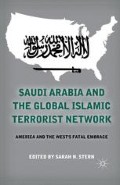Abstract
World history textbooks for junior and senior high school students have been found to contain many outright errors, much misinformation, and many other deficiencies in their coverage of Islam. Because they bypass official scrutiny in textbook adoption states, what is more troubling are many of the supplementary curriculum resources on Islam available to teachers. Although their ostensible goal is to expand students’ knowledge of Islam, give them other “points of view” on Islamic history and culture, combat intolerance, and/or promote “critical thinking,” their real goal, suggested by an analysis of their materials and their effects on teachers, is to influence how children come to understand and think about social, political, and religious issues involving Islam and the Islamic world. Their political agendas are so subtly embedded in their readings and learning activities that apolitical teachers are unlikely to spot them. And to facilitate acceptance, they appeal to teachers’ sense of fairness and their presumed obligation to promote “social justice” and withhold negative moral judgments about other people or cultures, especially those deemed victims of imperialism or colonialism.
Access this chapter
Tax calculation will be finalised at checkout
Purchases are for personal use only
Preview
Unable to display preview. Download preview PDF.
Notes
Richard Bernstein, “The Battle of Brookline and Other Struggles over Young Minds,” in Dictatorship of Virtue: Multiculturalism and the Battle for America’s Future (New York: Alfred A. Knopf, 1994), 235–91.
Howard Schneider, “Rote Schooling in Saudi Arabia Leaves Students Ill-Suited to Work,” The Washington Post, June 12, 1999.
Associated Press, “A Grim Arab Survey of Rights and Education,” The New York Times, October 21, 2003.
Barbara Crossette, “Study Warns of Stagnation in Arab Societies,” The New York Times, July 2, 2002.
Richard Bernstein, “The Battle of Brookline and Other Struggles over Young Minds,” in Dictatorship of Virtue (New York: Vintage Books, 1995).
Robert Costrell, “The Mother of All Curriculums,” Educational Excellence Network: News and Views, June 1991, 38. 17.
Editor information
Copyright information
© 2011 Sarah N. Stern
About this chapter
Cite this chapter
Stotsky, S. (2011). The Stealth Curriculum. In: Stern, S.N. (eds) Saudi Arabia and the Global Islamic Terrorist Network. Palgrave Macmillan, New York. https://doi.org/10.1057/9780230370715_6
Download citation
DOI: https://doi.org/10.1057/9780230370715_6
Publisher Name: Palgrave Macmillan, New York
Print ISBN: 978-1-349-29425-1
Online ISBN: 978-0-230-37071-5
eBook Packages: Palgrave Political & Intern. Studies CollectionPolitical Science and International Studies (R0)

